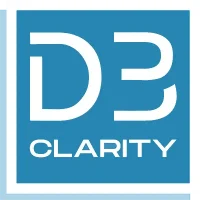Party
DESCRIPTION:
The party domain in master data management (MDM) encompasses the comprehensive management of data about entities with whom an organization interacts. These entities could be individuals, organizations, or groups. The party domain ensures a single, unified view of these entities across the organization, eliminating duplicates and consolidating fragmented data. This domain not only provides clear insights into interactions and relationships but also supports better customer and partner relationship management.
TYPES:
- Individuals: Natural persons, such as customers, contacts, or employees.
- Organizations: Legal entities like companies, suppliers, or partners.
- Groups: Collections of individuals or organizations, e.g., households, corporate hierarchies.
- Roles: The functions or positions that a party can have, such as “billing contact” or “supplier.
COMMON ATTRIBUTES:
- Unique Identifier (e.g., Customer ID or Supplier Code)
- Name (First, Middle, Last for individuals; Legal and Trade names for organizations)
- Date of Birth (for individuals)
- Contact Information (Address, Email, Phone Number)
- Relationship Type (e.g., vendor, partner, customer)
- Affiliations or Associations
- Transaction History
- Preferences or Behavioral Data
BENEFITS:
- Unified View: Gain a holistic view of a party, including all their interactions and relationships.
- Enhanced Customer Experience: Enables personalized interactions and targeted marketing.
- Operational Efficiency: Reduces errors, discrepancies, and redundancies in party data.
- Better Relationship Management: Understand and cater to the needs of partners, suppliers, and customers more effectively.
- Regulatory Compliance: Ensures accurate and consistent data about parties, critical for sectors like finance or healthcare.
CHALLENGES & CONSIDERATIONS:
- Data Privacy: With the management of personal data comes the need to ensure compliance with data protection regulations.
- Duplication: Parties might be represented in multiple systems, leading to duplicate entries.
- Data Quality: Ensuring data is accurate, up-to-date, and complete.
- Scalability: As organizations grow, the volume of party data can become massive, requiring scalable MDM solutions.
COMMON DEPENDENCIES:
- Transactional Data: Interactions or transactions associated with a party, such as purchase history or service requests.
- Reference Data: Classification or categorization of parties based on reference data like industry codes or country codes.
- Other Master Data Domains: Like products (what products a party purchased) or assets (what assets a party owns/leases).
The party domain in MDM is fundamental for any organization that values its relationships, whether with customers, partners, suppliers, or even internal stakeholders. Properly managed party data facilitates enhanced experiences, informed decisions, and streamlined operations. Given the intricacies of managing such data, including regulatory considerations and the complexities of human and organizational interactions, a robust MDM approach is indispensable for maximizing the value of the party domain.












